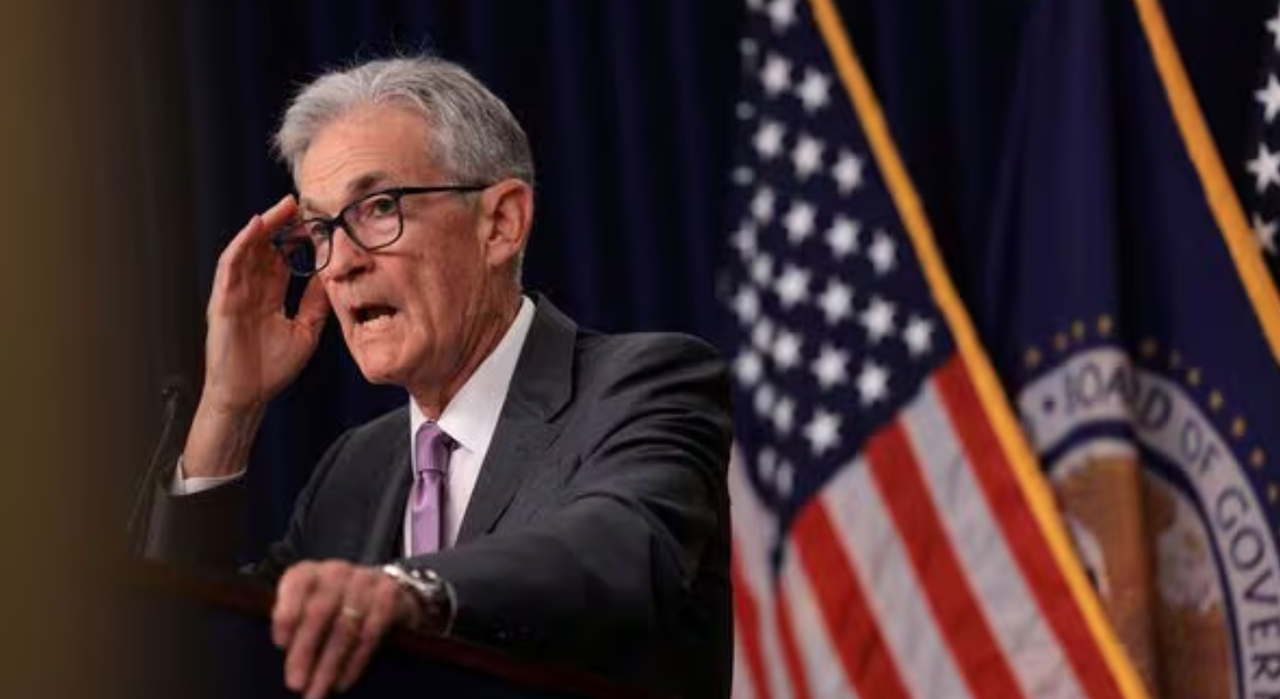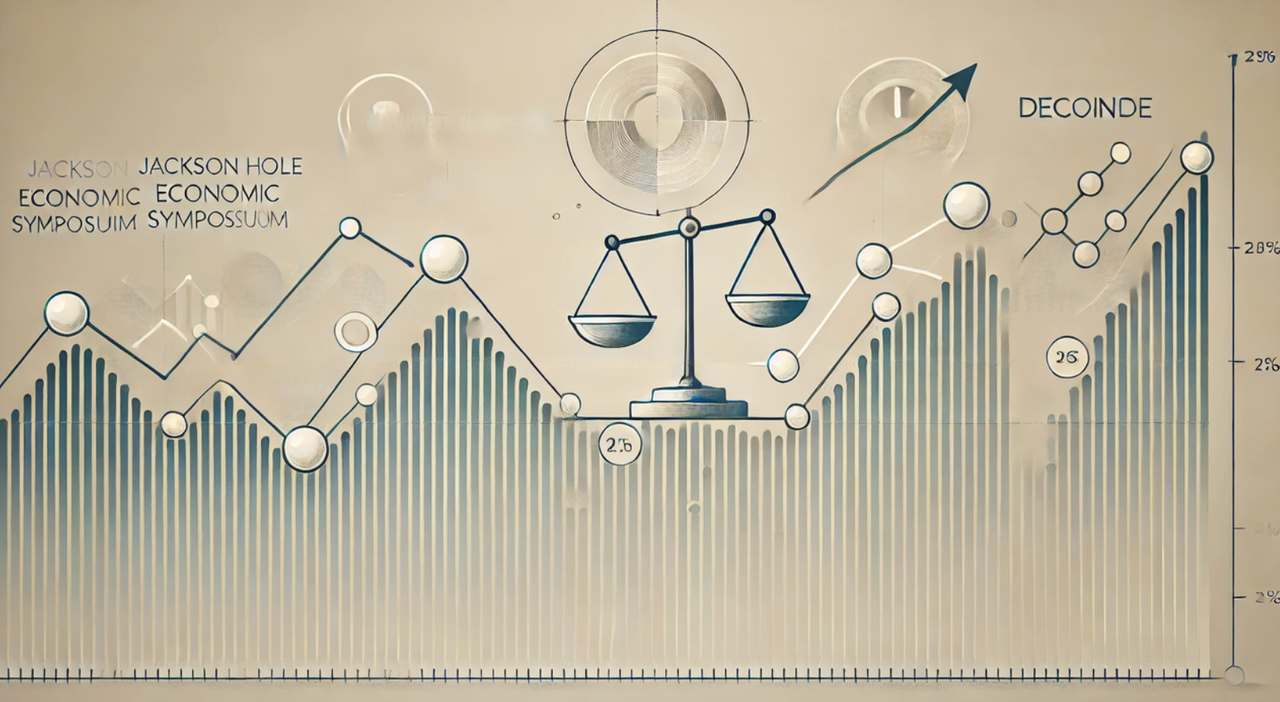Every late summer, the global economic community's attention is focused on an important event - the Jackson Hole Economic Symposium.
This annual event, hosted by the Kansas City Federal Reserve, attracts central bank officials, economists, financial market participants, and media representatives from around the world to discuss economic policies and market trends.
This year's symposium will be held from August 22nd to 24th, with the theme "Reassessing the Effectiveness and Transmission of Monetary Policy."

After years of a low-interest-rate environment, the U.S. economy has shown remarkable resilience in the face of an interest rate hike of over 5 percentage points, attracting widespread attention and discussion. Despite widespread predictions of a possible recession, data shows that the U.S. economy seems to remain strong despite ignoring these forecasts.
Factors such as low-interest mortgages held by homeowners and refinancing by businesses using ultra-low interest rates reflect that the impact of monetary policy on the real economy is not as significant as it used to be.
The highly anticipated Jackson Hole symposium will serve as a barometer for interpreting the above phenomenon.
01. Influence
Since its first session in 1982, the Jackson Hole Economic Symposium has become an important platform for global central bank officials, economists, financial market experts, and policymakers to exchange and discuss economic policies.
Every August, the symposium is held in the town of Jackson Hole, Wyoming, USA, attracting senior economic decision-makers and academic researchers from around the world.
The main topics of the conference usually revolve around the current economic situation and its future development, especially the adjustment of monetary policy and its potential impact on the global economy. This year, the theme of the symposium is "Reassessing the Effectiveness and Transmission of Monetary Policy," aiming to delve into how monetary policy can be more effectively transmitted to the real economy in the current economic environment and evaluate its actual effects.
The Jackson Hole symposium is known for its high-level participants and rigorous discussion content. Each year, central bank representatives, economists, and financial market participants from various countries engage in discussions on core topics, which not only include macroeconomic policies but also involve innovations and challenges in monetary policy.
The research results and policy recommendations of the participants are usually published online in the form of reports and papers after the conference, for reference by people from all walks of life around the world.
The influence of the symposium is not limited to the discussion content itself. Due to its high level of attention to global economic policies, the speeches and discussions at the Jackson Hole symposium often have far-reaching effects on the financial markets.

02. Historical Review
The Jackson Hole symposium has been a significant event in the global economic field, and its discussions and keynote speeches over the years have had a profound impact on the financial markets and economic policies.
For example, the 2022 Jackson Hole symposium focused on the challenges of global inflation and interest rate hikes facing the global economy. Federal Reserve Chairman Jerome Powell delivered strong criticism, explicitly stating that the Fed would continue its aggressive monetary policy tightening. This stance shocked global markets, especially in the technology and growth stock sectors, leading to significant declines in the stock market. Powell's hawkish speech indicated that the Fed would aggressively combat inflation, even though this policy might affect economic growth expectations.
More recently, the 2021 conference reflected different expectations in the market for the normalization of monetary policy. During the conference, Powell's remarks were somewhat moderate, emphasizing the complexity and uncertainty of the economic recovery. Despite the beginning of the economic recovery at the time, the market remained skeptical about the future policy path. After the conference, the reactions of the stock and bond markets indicated a significant change in investors' expectations for future interest rate hikes, increasing market uncertainty.
The 2020 Jackson Hole symposium was significantly affected by the special background of the pandemic. During the conference, the Fed announced a new monetary policy framework, focusing on allowing inflation levels to exceed the target for a certain period to compensate for the policy shift caused by the pandemic. This policy was widely seen as a positive support for the economic recovery, leading to a significant increase in the stock market after the conference and further driving the prosperity of technology stocks and other high-growth industries.
From these historical data, it can be seen that the Jackson Hole symposium is not only the focus of global economic policy discussions but also profoundly influences market sentiment and trends.
03. Key Policy Barometer
With the opening of the 2024 Jackson Hole Economic Symposium, the global financial markets' attention is once again focused on the Grand Teton Mountains in Wyoming, USA.
Federal Reserve Chairman Jerome Powell will deliver a key speech on the economic outlook at this year's conference, scheduled for 10 a.m. New York time on August 23rd. This speech will not only discuss the current state of the U.S. economy but may also bring important signals about future monetary policy to the market.
In recent years, the Jackson Hole symposium has become a "barometer" for observing the direction of global economic policies, especially in the current situation where the global economy is facing dark clouds of uncertainty. Each of Powell's speeches may have an impact on the market.
The theme of this year's symposium is "Reassessing the Effectiveness and Transmission of Monetary Policy," which is a practical direction for discussion in the current economic environment. Over the past year, the Fed has raised the benchmark interest rate to a range of 5.25%-5.50% through a series of aggressive rate hikes, aimed at addressing sustained high inflation pressure. However, despite the rise in interest rates, the U.S. economy has remained strong, especially in the employment and consumption sectors, making market predictions about future policy paths more complex.
The market generally expects Powell to provide a clear indication of the timing of future interest rate cuts in this speech. Analysts point out that Powell may hint at the imminent timing of interest rate cuts, but the magnitude and speed of the cuts will continue to be announced based on upcoming economic data. Recent employment and inflation data will be factors influencing Fed decisions. With the results of the September FOMC meeting, the market's expectations for interest rate cuts are becoming increasingly important, with some institutions even predicting that the Fed may cut interest rates three times, each time by 25 basis points.
However, Powell may also take a more cautious approach, emphasizing the uncertainty and data dependency in the policy-making process. In this context, the market will closely watch the discussions at the Jackson Hole symposium, especially how Powell's speech will affect the future direction of monetary policy over the next few months.
In addition to the Fed, Bank of England Governor Andrew Bailey and European Central Bank Chief Economist Philip Lane will also deliver speeches at this year's conference, and their speeches will also have a significant impact on the global market. Overall, the 2024 Jackson Hole symposium will be a key moment for global central bank policy shifts, and the market will seek clues for future policy changes from it.
Conclusion
With the convening of the 2024 Jackson Hole symposium, the global financial markets are once again focused on the policies of the Federal Reserve and other major central banks. The outcome of the conference will not only profoundly affect the future trends of the global economy but may also become a catalyst for new dynamics in the cryptocurrency market.
Therefore, a comprehensive understanding and analysis of the background of these macroeconomic policies and their potential impact will be crucial for formulating effective investment policies. Especially in the current situation of global economic uncertainty, closely monitoring economic data and policy changes can help investors better cope with market volatility and seize new investment opportunities.
In the coming months, the policy signals conveyed by the Jackson Hole symposium may become important barometers for market trends. Investors should remain highly vigilant, adjust their strategies in a timely manner, and respond to potential market fluctuations and risks, while also seizing the new opportunities that may arise from them.
免责声明:本文章仅代表作者个人观点,不代表本平台的立场和观点。本文章仅供信息分享,不构成对任何人的任何投资建议。用户与作者之间的任何争议,与本平台无关。如网页中刊载的文章或图片涉及侵权,请提供相关的权利证明和身份证明发送邮件到support@aicoin.com,本平台相关工作人员将会进行核查。




